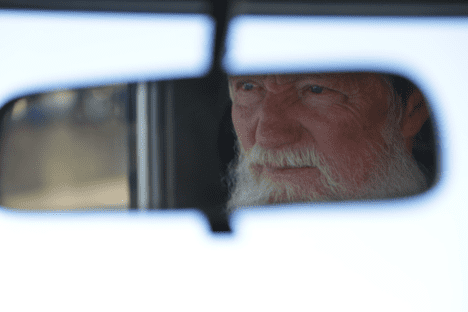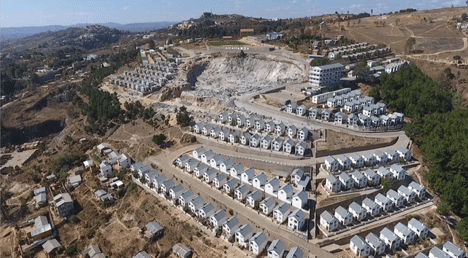 A few days ago the presentation of the documentary “Opeka” was announced in various media. It tells the inspiring story of our confrere: the Vincentian missionary Father Pedro Opeka, CM, and will be screened at various film festivals during 2020 and 2021.
A few days ago the presentation of the documentary “Opeka” was announced in various media. It tells the inspiring story of our confrere: the Vincentian missionary Father Pedro Opeka, CM, and will be screened at various film festivals during 2020 and 2021.
The Communications Office of the Congregation of the Mission contacted Cam Cowan to interview him and to learn more about the documentary. The entire interview, which highlights the director’s passion for human rights and the fight against injustice, will be published on our web page in the coming days.
We’re sure you’ll love this perspective on Vincentian charism!
How did you come up with the idea to make a documentary about Father Opeka?
I met Father Pedro in August 2014 while we were in production for “MADAGASIKARA”, our documentary film about Madagascar’s political, economic and social struggles. I was standing on the top ledge of a huge quarry in Antananarivo, Madagascar’s capital city, because I was interested in filming there. From below emerged a young woman carrying a basket of broken stone on her head and a baby on her back, and I asked her where people working in the quarry lived.
She said most live just outside the quarry, but “some live up there”, pointing in the distance to the next hillside. There I saw rows and rows of glistening white buildings on the hill. I had been around the entire country but had not seen so magical a scene anywhere else on the island.
I asked her what those buildings were, and she said, “That’s Akamasoa.” I then asked her what Akamasoa was, and she seemed surprised I did not know. Smiling, she said, “That’s Father Pedro!”
After doing some research on Father Pedro, I knew I wanted to interview him for the film “MADAGASIKARA”. Two months later we drove to Akamasoa and asked to see Father Pedro. He had just returned from an exhausting fund-raising trip in Europe and was very serious.
I told him I was making a film to try to bring the real Madagascar to the West. I wanted to counter the images created by Hollywood animated films and documentaries that focused on the environment and explore the lives of real people in what, at that time, was the poorest country on the planet, where 93% of the people lived on less than $2 per day, half the population of 24 million were children and half of the children were grossly malnourished.
I told him my research revealed that Madagascar had been damaged by national and international political forces – including by my own country, the U.S. – and I wanted people to understand the devasting impacts those actions had, and continued to have, on Madagascar and its people. After my explanation, with a big smile from behind his big white beard he said, “How can I help?”
During subsequent filming trips to Madagascar, Father Pedro graciously allowed me to interview him as one of the film’s experts on the conditions in the country. He appears as such briefly in “MADAGASIKARA”.
And so I got to know him better, sharing meals he insisted we eat with him, seeing him conduct Mass with thousands of Malagasy people attending – not just from Akamasoa but from everywhere in the area and from all denominations – touring the villages, meeting the people of the Akamasoa community and learning about his fascinating life story.
I soon realized that I wanted to make a documentary about Father Pedro. There have been documentaries made and books written about him, but I knew that he was not well known in much of the world, particularly North America. And I wanted to try to change that through a quality film that focused on his life and his extraordinary achievements as a humanitarian.
Why? Because he is one of the most remarkable people I have ever met. He is bigger than life. He is a force of nature who passed up an opportunity to be a professional football player in Argentina so he could dedicate his life to social justice for the poorest people on the planet. And he has demonstrated by action – audacious and overwhelming action – that poverty is not inevitable, is not fate.
I also saw that his story would be the perfect companion to “MADAGASIKARA”. That film is about survival, “OPEKA” is about hope. My intention is that the two films – as a duology – will have a poverty problem/solution impact beyond Madagascar.


Trackbacks/Pingbacks